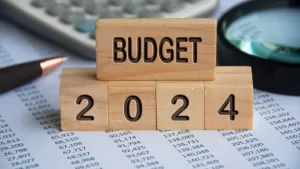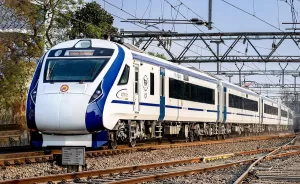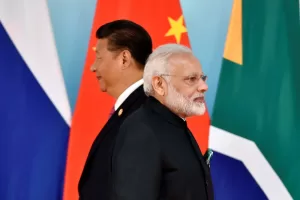Bobby Ramakant, Shobha Shukla and Sandeep Pandey
Along with measures to cut the chain of transmission of corona virus (such as lockdown, social distancing, masks), it is indeed important to find those who are positive for coronavirus disease (COVID-19), isolate them and provide them with best possible medical care as needed. It appears that government is facing shortage of capacity to scale up testing across the country, and shortage of hospital beds to provide medical care to some of those who test positive and may need it. In India, there is a law (The Epidemics Act 1897) which gives government (even state governments) constitutional authority to bring all private health sector under government control. What should be a better way to scale up testing and hospitalization capacity in the country: to bring all private health sector under government control, or try to negotiate a price with private sector?
COVID-19 is a public health emergency and is cascading into several humanitarian crises of different intensities and levels across the nation. Given the immediacy and urgency of response we need to build to have the best chance to contain COVID-19 at the earliest, some of the state governments did bring the private sector under government control.
But if all private health ‘industry’ was brought under government control nationwide, then government could have leveraged it to strengthen COVID-19 response on a range of levels, such as, companies competent enough to procure or manufacture antibody rapid and/or Reverse Transcriptase Polymerase Chain Reaction (RT-PCR) tests, fully equipped laboratories to do these testing, hospitals and its staff to take care of those who need medical attention due to COVID-19 (and other non-COVID-19 health needs which are no less life-threatening).
But instead the national government chose the way to negotiate with private sector maximum price cap for testing. Last month, government announced that maximum price cap for COVID-19 test in private sector will be Rs 4500. Then in early April 2020, Supreme Court thankfully ordered that COVID-19 tests will be free in private and public sector both, and private sector should be “extending philanthropic services in the hour of national crisis.” However this order was modified by Supreme Court a week later that free test in private sector be made available only for the poorest and government should decide which other categories of people should get this benefit, as well as private sector can charge the earlier agreed price from others.
COVID-19 testing and all medical care remains free of cost for everyone in government health sector. But in private, there is a maximum cap on cost for a test, as well as, it is reported that cost of intensive care unit and medical care for COVID-19 could be several lakhs of rupees for estimated fifteen days of hospitalization.
In COVID-19 like-crisis situation, should not the government have brought all the private health ‘industry’ under its control so that all diagnostics to medical care is free of cost for a country where a lot of its citizens are already reeling under intensifying economic hardships?
Prohibitive cost of medical care is the biggest barrier that blocks those who need lifesaving care. Medical costs are also a reason to push people deeper into poverty. We in India were dealing with pandemics before COVID-19 too. Pneumonia is biggest killer of children under five years, malnutrition affects our children most in the world, tuberculosis (TB), world’s biggest killer infectious disease, has maximum disease burden in India, non-communicable diseases (such as, heart disease and stroke, diabetes, cancers, chronic respiratory diseases, among others) have one of the biggest burdens in our population. More humbling is the reality that most of these diseases are preventable, and premature deaths could have been averted – if preventive healthcare and all necessary public health promotion activities were in place.
In COVID-19 pandemic, if intention was to encourage those with symptoms to get diagnosed and benefit from best possible care (even if no cure exists for COVID-19), then government should have first removed the exorbitant cost barrier by bringing all private health sector under government control, with all infrastructure, supplies and skilled human resource, and collectively contribute to the crisis which has challenged our nation.
Countries like Spain have nationalized health services during COVID-19 crisis whereas about 30 countries including Canada, United Kingdom, Brazil, South Africa, Cuba and Sri Lanka had a government funded healthcare system from before. While most countries of the world are overwhelmed with the current COVID-19 crisis a small country like Cuba has sent its doctors to 19 countries including one of the worst affected Italy to handle the emergency and allowed a British ship with five people affected by coronavirus to dock near its shore when other countries had refused such a permission. One can imagine the strength of public healthcare system there.
A recent controversy that came afore was around Government’s attempt to procure over five lakh rapid test kits. A company called Matrix, imported the rapid test kits at Rs 245 per kit price (total cost of 5 lakh kits is Rs 12 crores 25 lakhs), another company called Rare Metabolics bought these kits from Matrix after paying Rs 7.75 crores more (so total cost went up to Rs 21 crores). And Rare Metabolics gave these kits to Indian government at a price of Rs 600 per kit (Rs 30 crores in total). However, government of India’s press release issued on 27 April 2020, said that not a rupee has been paid to any company as entire order stands cancelled.
Indian Council of Medical Research (ICMR) was directly involved in above procurement of rapid test kits. ICMR tweeted on 27 April 2020 that “Price range approved by ICMR is Rs 740-1150 for RT-PCR and Rs 528-795 for Rapid Test.” It is inexplicable why when the ICMR has rejected the abovementioned rapid test kit on ths basis of unsatisfactory performance, the Delhi High Court has put a price cap of Rs. 400 on these kits?
Should not citizens question the government then on what basis has it allowed private sector to charge maximum price of Rs 4500 per test? (when entire test kit costs much less as told by ICMR in its tweet). When everybody is being expected to make a sacrifice, government employees have had to involuntarily give up one day salary, Member of Parliaments have agreed to a 30% cut in salaries, MP Local Area Development fund has been suspended for 2 years, medical staff are exposing themselves to risk in ‘national service,’ why is the private sector being given a free hand to milk more profits even when nation reels under such a severe crisis? Why is a government-to-government arrangement not being made to procure COVID-19 testing kits like in the case of Rafale deal? Is the coronavirus threat any less serious than matter of national security?
Dr Richard Horton, Editor-in-Chief of The Lancet wrote in March 2018 that “politics is the ultimate determinant of health”. On 24 April 2020, Dr Horton wrote “The idea you can strip out politics from medicine or health is historically ignorant”. Nationalizing health services is among the most important corrective political actions which governments can take in wake of this pandemic. But health security for everyone can only come when we address inequalities and injustices in every other sector. That is why ending privatization and protecting public health, public water, public education, public transport, and other public services along with social security for everyone, are among the acute needs today.
[Bobby Ramakant and Shobha Shukla are with Citizen News Service, and Sandeep Pandey is Vice President of Socialist Party (India).]
***
In another article, Sandeep Pandey, Bobby Ramakant and Surabhi Agarwal add:
We need to realize that in this moment of growing crises, we cannot afford that our government healthcare facilities should risk being shut down for quarantine, or healthcare workers face any undue risk of COVID-19.
But equally important is to ensure that while we try our best to prevent COVID-19 pandemic, we are not brewing more pandemics which could have been averted with timely and essential lifesaving care.
On 15 April 2020, Chief Minister of UP had asked authorities to “restart” emergency services in government hospitals, which were earlier suspended on 25 March 2020 to prevent the spread of coronavirus in hospitals.
People living with HIV or hepatitis C virus or active TB disease need uninterrupted treatment services. But due to lockdown, either health facilities were affected, or people were not able to go to the clinic to get their lifesaving medicines. There was some respite for HIV as National AIDS Control Organization of the Ministry of Health and Family Welfare had relaxed guidelines hours before the imposition of lockdown. These guidelines enabled the volunteers among people living with HIV who stepped forward to home deliver antiretroviral drugs from government-run HIV clinics to over 45,000 people by early April 2020. But India has over 14 lakhs people who are on lifesaving antiretroviral therapy.
Similarly, TB services were affected. State TB officer of UP said that TB field workers were deployed for COVID-19 work. “OPDs in government hospitals are not functioning, private clinics have closed down. Even patients who are symptomatic (for TB) cannot access facilities.” “We have about 4,75,000 active (TB) cases. It is a huge challenge to get medicines to them. We are trying our best to ensure that their treatment is not disrupted.”
Essential services must also mean that we need to ensure uninterrupted medicines are reaching each one of those whose lives depend on it, and everyone who needs healthcare is able to get it. But if we look at number of deaths due to preventable diseases and avoidable causes, a humbling realization may dawn on us as to how long neglected has health security been.
People do not flock to government hospitals casually, but only when health need attention or become acute or unbearable. Attending to COVID-19 is a public health emergency globally, but attending to heart diseases, strokes, cancers, diabetes, chronic respiratory diseases, or world’s biggest killer infectious disease (tuberculosis), is also an equal priority.
If patients with serious aliments other than COVID-19 are not given timely lifesaving healthcare, then we need to brace ourselves for a more worrying and unfortunate situation of multiple health and humanitarian crises. This has exposed the inadequacy of our health care system….
We have read news about how railway coaches are being converted into emergency hospital wards. But if there is lack of availability of infrastructure with the government healthcare system then the best way to add capacity would have been to nationalise the healthcare system. Then it would have at its disposal not only all the private hospitals, their equipments but also doctors and medical staff associated with it.
After years of relentless privatization and weakening public health sector, there is a welcome recognition of the central role public healthcare plays in times of crises. COVID-19 has also exposed in all its ugliness how futile is private sector in times of healthcare crisis.
[The writers are associated with Socialist Party (India).]
***
Pratap Antony, in an article “The TB Paradox”, adds:
1400 people in India die every day due to TB
TB is extremely dangerous because it has been prevalent for years. India accounts for about 24% of the global prevalence and 21% of the global TB deaths. Clearly, TB is a huge problem. It is spread the same way as Covid-19, i.e. it is transmissible through droplets, so if we are within 3 to 4 metres of an infected person who speaks, sneezes, spits or coughs, we can be infected and become a TB patient, and if we are lucky we could be cured with treatment, or we could be one of the around 5 lakh people who die of it in India every year.
India has been engaged in Tuberculosis (TB control activities for more than 50 years). Yet TB continues to be India’s severest health crisis. TB kills an estimated 480,000 Indians every year and more than 1,400 every day. (National Strategic Plan for Tuberculosis elimination 2017–2025, https://tbcindia.gov.in/WriteReadData/NSP%20Draft%2020.02.2017%201.pdf.)
(Pratap Antony writes on ecology and environment, social justice and pluralism, management ideas and issues, jazz and western classical music and Indian classical dance.)




